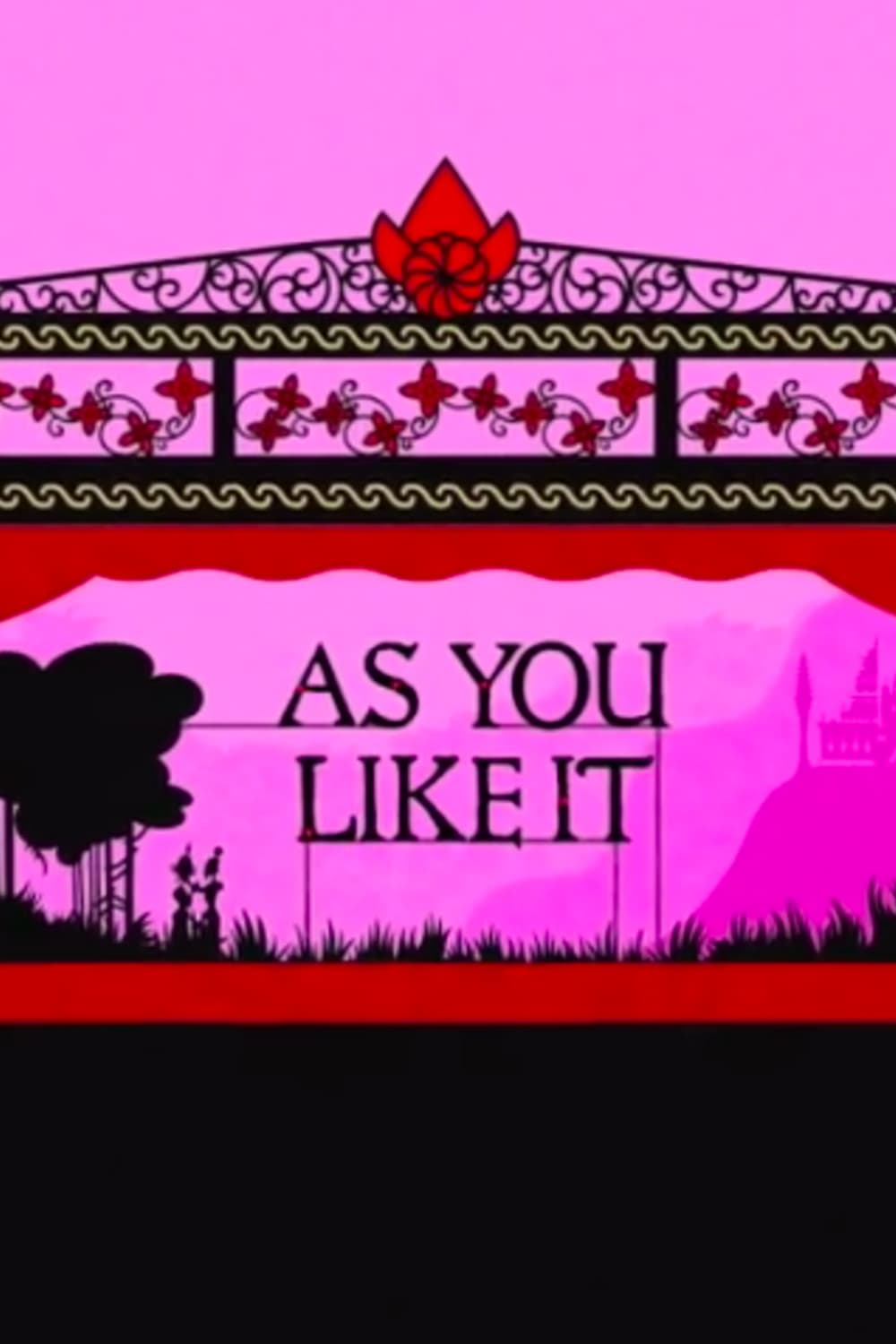
August 6, 2021, by Peter Kirwan
As You Like It (dir. Hannes Rall)
Hannes Rall’s animated film of As You Like It, created in collaboration with the Shakespeare Institute, draws on a range of influences from South East Asia to offer a short retelling that would fit neatly alongside the classic S4C Animated Tales. In just 26 minutes, the film covers a surprising amount of ground from the play, with a witty delivery and arresting visual style that creates something distinctive and, crucially, does important work in decolonising the field of animated Shakespeare that is so often white by default.
Drawing on shadow puppetry, the film renders two-dimensional figures against a background that recedes into the distance to give layers of depth, like the classic model puppet theatres. The two-dimensionality of the characters – who show how paper-thin they are when they swivel on a dime to change the direction they’re facing – celebrates the materiality of the design, and the magical artifice of their costume changes (conjured with a quick disappear/reappear act) makes a virtue out of the medium.
The free adaptation uses Shakespeare’s text but reorganises the material to create unusual connections. Rosalind (Julie Wee) and Celia (Tan Kheng Hua) leave court to immediately find Orlando’s (Joshua Lim) poetry in the forest and encounter the lover himself. Orlando, meanwhile, wrestles with the lion (here a tiger) and only then goes to Duke Senior’s (Lim Yu Beng) forest table for succour. The compression comes at the expense of Corin and Oliver (completely cut – it seems to be Charles who Orlando rescues from the tiger) and the Phoebe/Silvius plot, which feels less well integrated than usual. The trade-off is a dynamic narrative that feels far less like it’s treading water than usual, going from Rosalind and Orlando’s initial meeting to their quick negotiation to Rosalind’s final trick.
The distinction between court and country is one of the most effective parts of the animation. The court is a world of black silhouettes, decorated with tattoos and jewellery, and lit by fire. Charles (Bruce) is a towering hulk of a man who spins Orlando around at the end of his arms and throws him down a couple of times; the lithe Orlando has to get behind him before he can unleash the devastating attack that wins the bout. But when Rosalind and Celia decide to go to the forest, their disguises see them reverse their shades, taking on a variety of skin tones that are replicated by those in the forest, situating Arden as a more diverse melting pot of peoples than the homogeneity imposed on people while at court.
The forest is full of wit. Touchstone (Gene Shah Rudyn) and the non-speaking Audrey are both monkeys, and while Touchstone’s role is very limited (and Jacques is entirely absent), the cute animal sidekick is a fun direction to take Touchstone in. The real wit is in the background. As the Narrator (Samuel West) describes Duke Senior living like Robin Hood, a little background animation shows an arrow suspended over a deer, who is skewered and dies comically; elsewhere, Shaun the Sheep-style sheep glare at the viewer from behind the action.
The magical conclusion sees a version of Hyman (Hua again) appearing and flitting between the sets of lovers. Silvius (Marlon D.) and Phoebe (Noella Menon) are developed less well, but the visual design suggests an elderly Silvius, bent over and smiling, which is an interesting variation on the usual dynamic; interestingly, Celia is curved the other way to suggest an innate nobility and pride. While the short film doesn’t give an enormous amount of time to invest in the couples, the unity provided by the abstract flight of Celia in the film’s final moments creates a structural set of connections between them that celebrates the freedom of the forest and of human connections, with no promise of return to the court.
No comments yet, fill out a comment to be the first

Leave a Reply